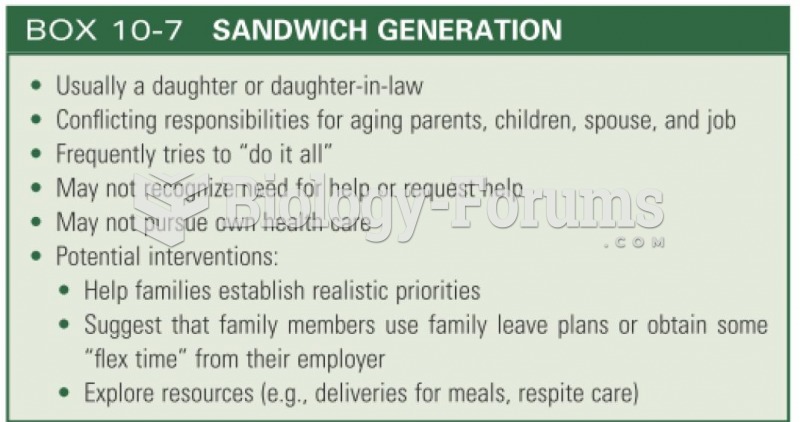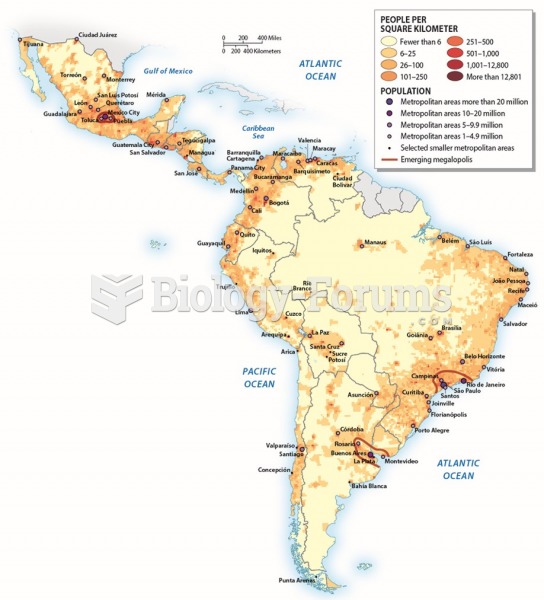|
|
|
Medication errors are three times higher among children and infants than with adults.
All patients with hyperparathyroidism will develop osteoporosis. The parathyroid glands maintain blood calcium within the normal range. All patients with this disease will continue to lose calcium from their bones every day, and there is no way to prevent the development of osteoporosis as a result.
When blood is deoxygenated and flowing back to the heart through the veins, it is dark reddish-blue in color. Blood in the arteries that is oxygenated and flowing out to the body is bright red. Whereas arterial blood comes out in spurts, venous blood flows.
Human stomach acid is strong enough to dissolve small pieces of metal such as razor blades or staples.
In most cases, kidneys can recover from almost complete loss of function, such as in acute kidney (renal) failure.







